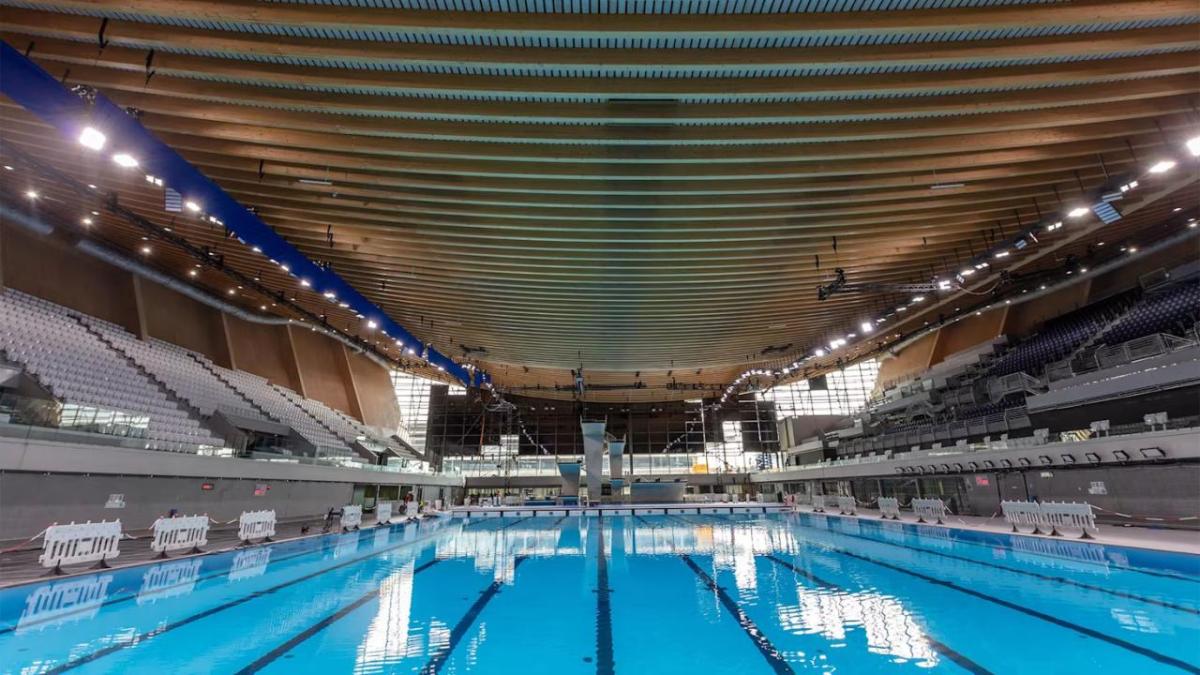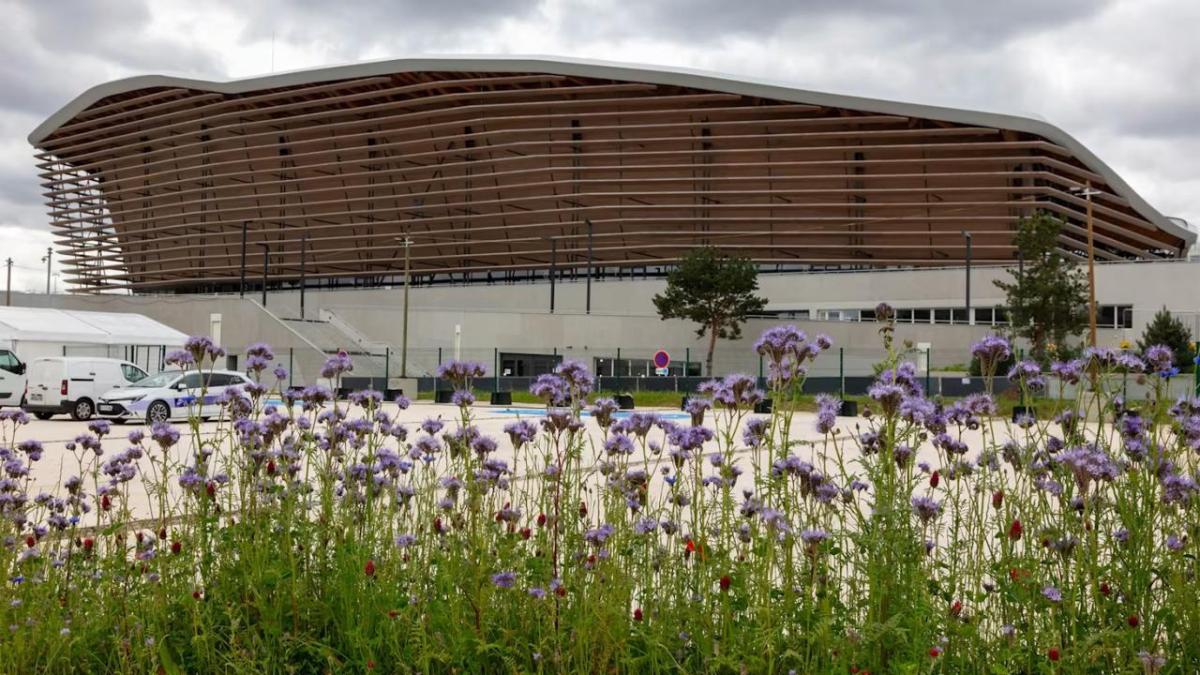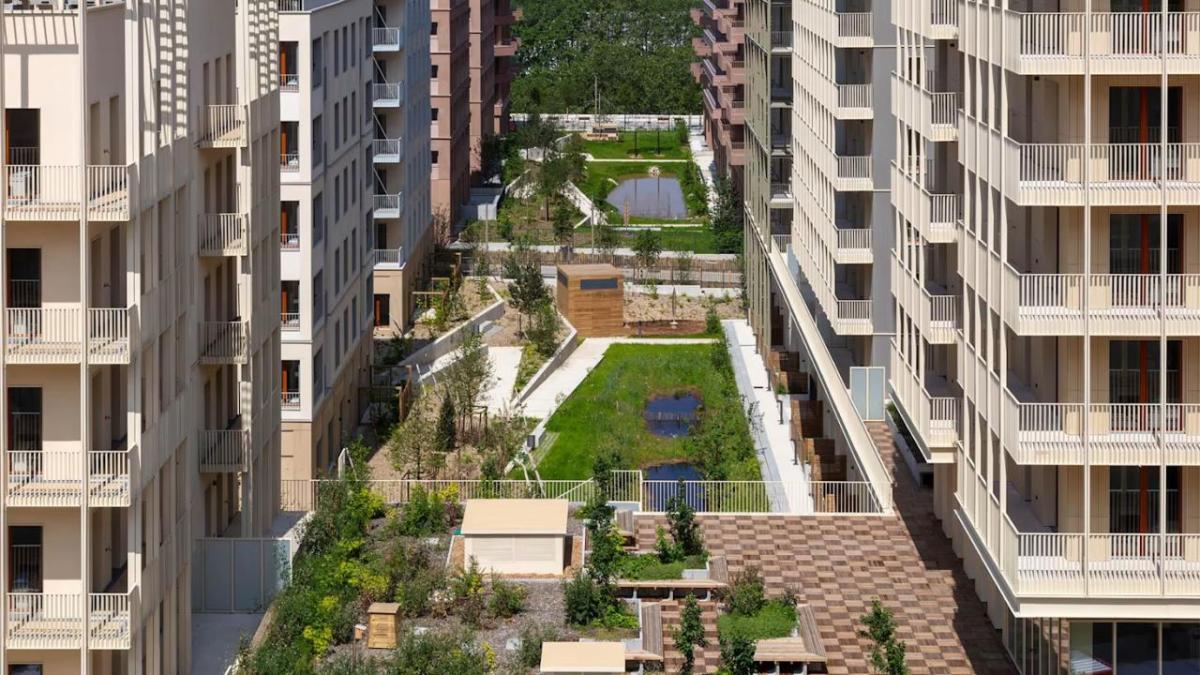Paris 2024 Models a New Sustainable Urban Vision
Published 07-22-24
Submitted by International Olympic Committee

International Olympic Committee news
Take a stroll around the more than 30 venues of the Olympic Games Paris 2024 and one thing is apparent: most of them look familiar. That’s because most Paris 2024 venues were built long before the city’s candidature to host the Games.
From the iconic 80,000-seat Stade de France in Saint Denis – home to athletics, Para athletics and rugby sevens – to the Saint-Quentin Velodrome, which will host the cycling events, 95 per cent of the Olympic venues are facilities that either already existed or have been temporarily assembled and will be dismantled for future reuse after the Games. The names of other major venues, such as Roland Garros and Parc des Princes, will also be familiar to sports fans from around the world. Spectators will be able to access all of them by public transport.
In addition, an important part of the Paris 2024 strategy is to keep travel between venues to a minimum. Almost all the Olympic venues located in the Paris area are within 10 kilometres of the city centre.

A new model for the Games
In the past, cities transformed and developed to accommodate the Olympic Games. But with Olympic Agenda 2020, the IOC’s strategic roadmap that places sustainability and legacy at its heart, the approach has shifted to make the Games adapt to the hosts and to their long-term needs. Adopted in 2015, Olympic Agenda 2020 requires organisers to maximise the use of existing and temporary venues, minimise the environmental impact and use the Games as a catalyst to create long-term benefits for local populations.
We are collectively creating a new model for the Games to ensure they reduce their footprint, while maximising the positive impacts on the lives of local people. Paris 2024 puts that model into action in a spectacular way, and the venues are the most visible example of this,
Marie Sallois
IOC Director for Sustainability
“Paris 2024 puts that model into action in a spectacular way, and the venues are the most visible example of this,” says IOC Director for Sustainability Marie Sallois.
As the first Olympic Games to be fully aligned with Olympic Agenda 2020 requirements, Paris 2024 is using 95 per cent existing venues, which have been upgraded and modernised – not just for the Games, but to ensure long-term opportunities for local communities to practise sport. In addition, thanks to the momentum created by the Games, the French government has pledged to build 5,000 “proximity” sports grounds across the country, ensuring easier access to sport for everyone, closer to their homes.
The “reduce, repurpose and re-use” approach for venues is set to provide a springboard for the decarbonisation of France’s construction industry. The country hopes to cut carbon in the building sector as the European Union aims to reduce the bloc’s overall emissions by 55 per cent by 2030.

New venues, old construction materials
Even those venues which have been built specifically for this year’s Games have been constructed with the principle of reducing and reusing in mind. The stunning 5,000-seater Olympic Aquatics Centre in Seine-Saint-Denis has been described as the “main architectural icon for a Summer Games that is actively trying not to build them.” The ultra-low carbon structure was built using only bio-based materials – mainly timber – and its roof boasts a giant 5,000m2 solar farm. Its concave shape helps naturally heat the air and controls the humidity levels in the venue. Inside, the 5,000 spectator seats were made from recycled plastic bottle caps.
It is no coincidence that both the Aquatics Centre and the Olympic Village have been built in the north-eastern suburbs of Paris, where some of the city’s most under-invested neighbourhoods are located. More than half of 11-year-olds in the area do not know how to swim. After the Games, the Aquatics Centre will cater to the local community as a multi-sports hub, offering swimming, climbing and fitness facilities.
An Olympic Village for the future
The focus on sustainability goes beyond the competition venues themselves. The Olympic Village – home to a total of 23,500 athletes and support staff during the Games and Paralympic Games – has been designed to become a new residential neighbourhood, with more than 2,800 apartments. A quarter of these apartments will become public housing, while the rest will offer affordable flats for low-income workers and students. The first residents are set to move in in the spring of 2025.
“From the start, we were thinking both short and long term,” says Marion le Paul, Joint Director-General of SOLIDEO, the public body responsible for delivering the Games’ infrastructure. “The Village will have a second life long after the Games – in fact that will be its real life.”
With minimal new construction, an emphasis on using existing venues and investment in the long-term needs of the city’s residents, Paris 2024 feels like a game-changer.
“By setting an environmental and social example and through innovation, and by placing so much emphasis on creating lasting benefits for local communities even before the Games begin, Paris 2024 is setting new standards for the Olympic Games and other major sporting events,” says Marie Sallois.

International Olympic Committee
International Olympic Committee
The International Olympic Committee (IOC) is a not-for-profit independent international organisation that is committed to building a better world through sport. It redistributes more than 90 per cent of its income to the wider sporting movement, which means that every day the equivalent of USD 3.4 million goes to help athletes and sports organisations at all levels around the world.
As the leader of the Olympic Movement, the IOC acts as a catalyst for collaboration between all parties of the Olympic family, from the National Olympic Committees (NOCs), the International Sports Federations (IFs), the athletes and the Organising Committees for the Olympic Games (OCOGs) to the Worldwide Olympic Partners, broadcast partners and United Nations (UN) agencies, and shepherds success through a wide range of programmes and projects. On this basis, it ensures the regular celebration of the Olympic Games, supports all affiliated member organisations of the Olympic Movement and strongly encourages, by appropriate means, the promotion of the Olympic values.
More from International Olympic Committee

